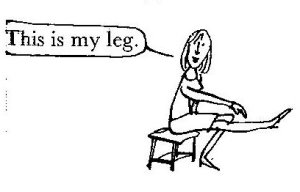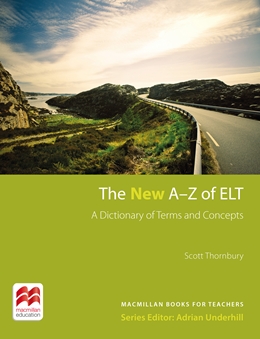Can you own an idea?
In the lastest issue of Voices, the IATEFL newsletter, in a page of teaching ideas, there appears the following activity:
1.Teacher borrows a notepad from a student and draws 2 big rectangles.
2. Teacher imagines these are family photos and describes the people and the event.
3. Students draw 2 big rectangles on their notepad page.
4. They do step 2 with a partner or small group.
5. Report back to group about their partners’ photos.
(Gobel, 2011, p. 11)
 Nice activity. Except that, apart from one or two small details (only one rectangle, not two, and the fact that the teacher doesn’t describe the ‘photo’ so much as invites questions about it), this is my idea. I happen to know it’s my idea because, unusually, it came to me in a dream. (I swear!) I’ve never written it up, but I’ve often done it in Dogme-style workshops.
Nice activity. Except that, apart from one or two small details (only one rectangle, not two, and the fact that the teacher doesn’t describe the ‘photo’ so much as invites questions about it), this is my idea. I happen to know it’s my idea because, unusually, it came to me in a dream. (I swear!) I’ve never written it up, but I’ve often done it in Dogme-style workshops.
So what? No one owns an idea. Moreover, there’s such a thing as synchronicity, when several people think of the same good idea at the same time. Maybe that’s what happened. So I’m not losing sleep about losing ownership of my idea. But it has got me thinking.
Several years back I was at the other end of a more serious breach of ‘intellectual ownership’. In a methodology book I wrote, I used a term that had recently been coined and popularised by an American academic of considerable repute. Not only did I use the term, I used it in the context of describing a view of linguistics that this writer herself had recently developed and was busily promoting. I felt it was right, therefore, to acknowledge her influence by putting her name at the head of the list of the people I wished to thank.
 Imagine my surprise, however, when – having received a complimentary copy – the writer in question emailed me to express her (barely concealed) anger that I had not credited her sufficiently, particularly with regard to the term she had coined. My response – that my book, not being an academic text, was deliberately thin on referencing – didn’t wash. “We are nothing if not our ideas, Scott,” she wrote. After a hastily convened conference-call with my series editor and publisher, the aggrieved academic was somewhat mollified by the promise that – in the next edition – the wrong would be righted (a promise that was fulfilled, I might add).
Imagine my surprise, however, when – having received a complimentary copy – the writer in question emailed me to express her (barely concealed) anger that I had not credited her sufficiently, particularly with regard to the term she had coined. My response – that my book, not being an academic text, was deliberately thin on referencing – didn’t wash. “We are nothing if not our ideas, Scott,” she wrote. After a hastily convened conference-call with my series editor and publisher, the aggrieved academic was somewhat mollified by the promise that – in the next edition – the wrong would be righted (a promise that was fulfilled, I might add).
“We are nothing if not our ideas”. At the time I thought this was somewhat pious, pretentious even, or just plain sad. Having since spent time on the fringes of the US academic community, I now understand better where she was coming from. There is a very different professional culture operating there than, say, in Britain or Europe. It is both more competitive and more proprietorial. Ideas matter.
 But for how long? On yet another occasion, I was taken to task by a reviewer of another of my books for not acknowledging the fact that one of the practice activities in that book had been invented by (the late) Donn Byrne, way back in the 1970s. I honestly didn’t know.
But for how long? On yet another occasion, I was taken to task by a reviewer of another of my books for not acknowledging the fact that one of the practice activities in that book had been invented by (the late) Donn Byrne, way back in the 1970s. I honestly didn’t know.
But be reasonable: how long does an idea have to be around before it enters the popular domain? Does anyone have a patent out on Alibis, for example, or on dictogloss? Who owns running dictations? At what point can you safely stop referencing Stephen Krashen when you talk about comprehensible input, or Jerome Bruner when you talk about scaffolding?
Nevertheless, ideas do matter – some ideas, at least. I’m not going to lose sleep – as I say – about the holiday photos activity. But I did tick off a fellow blogger, a few months back, when he mentioned ‘teaching unplugged’ without attribution. And this – from a post on the Dogme discussion list last week – caused a brief but sharp spasm of wounded pride: “The founders, the producers, actually don’t “own” this story [i.e. Dogme], this story is time-old: it belongs to life and language learning itself”.
So much for one’s precious ideas.
Gobel. G. 2011. ‘Practical Teaching Ideas’. Voices, 223. Pewsey: IATEFL. p. 11.





Recent comments